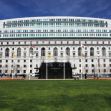If there is any lesson that businesses should learn from the recent pandemic, the most important one is probably this: Read your insurance policies carefully to make sure they are specific enough to cover all potential risks. The California Supreme Court has ruled that commercial property policies that cover losses due to viruses are only valid if they are caused by the specific grounds cited in their policies. This is so even if the grounds are so specific they render the coverage virtually meaningless.
John’s Grill, a family-owned “landmark” restaurant in downtown San Francisco and its owner John Konstin (together John’s Grill) sued the Sentinel Insurance Company because it denied coverage for losses suffered from COVID closures between March and September 2020. Sentinel said the restaurant’s losses did not fall within the policy section entitled “Limited Fungi, Bacteria or Virus Coverage,” also known as a “Virus Endorsement.”
John’s Grill’s policy contained very specific language that defined the Virus Coverage Endorsement. It said the policy “generally excludes coverage for any-virus-related loss or damage” unless “the virus was the result of certain specified causes or loss, including explosions, windstorms, hail, smoke, aircraft or vehicles, riots or civil commotions, vandalism, leakage from fire extinguishing equipment, volcanic action, …and sinkhole collapse.”
Public health emergencies, such as the COVID-19 pandemic, which would normally and automatically be associated with the word “virus,” are not mentioned at all, even though common sense would see a logical connection. When its coverage was denied, John’s Grill sued Sentinel for breach of contract, bad faith denial of an insurance claim, and unfair business practices, among others. The case came before Judge Ethan P. Schulman in San Francisco Superior Court. Sentinel won and the restaurant appealed.
John’s Grill agreed that it could not meet the Virus Coverage Endorsement requirement as written, but it also argued that the policy’s restrictive language rendered the “promise of virus-related coverage illusory.” Judges in District Four of California’s First District Court of Appeal agreed with the restaurant. Their opinion said the insurance company’s promise was illusory because the restaurant did not have a “realistic prospect of benefiting from their virus coverage because of the way the policy was written.” In addition, their limitations were “absurd” because the specified causes “are not the kinds of things that cause a virus…were impossible to satisfy...and were outrageous.”
The California Supreme Court on August 8 reversed and remanded the case to Judge Schulman. In a unanimous 7-0 opinion, written by Chief Justice Patricia Guerrero, the High Court concluded that the “Court of Appeal erred by declining to enforce the specified cause or loss limitation.” The opinion said the terms of Limited Fungi, Bacteria or Virus coverage “are clear and unambiguous.” It specified that virus-related coverage would only be provided if the virus came from specific causes of loss. She wrote, “In accordance with long-settled principles of contract interpretation, the plain meaning of the policy governs. Because John’s Grill admits that it cannot satisfy the specified cause of loss limitation, it has no claim for coverage under the policy.”
Justice Guerrero also wrote that “This court has never recognized an illusory coverage doctrine as such” and said there is no precedent that recognizes it either. The opinion said that even if some version of illusory coverage exists under State law, John’s Grill, as the insured, had to make a “foundational showing” that it had a reasonable expectation that the policy would cover its losses. But John’s Grill did not do that, thus the plaintiff “failed to establish” that the policy actually created the illusion of coverage. Instead, “the policy offered John’s Grill a realistic prospect for virus-related coverage.” The Court also discussed the difference between physical loss due to property damage, which would normally be covered, and business income, which would not.
The Supreme Court opinion then turned to an explanation of contract provisions, which the opinion said must be interpreted by their “ordinary and popular sense.” It said, “A policy provision is ambiguous only if it is susceptible to two or more reasonable constructions despite the plain meaning of its terms within the context of the policy as a whole.” Using this guideline Guerrero said it was “undisputed that read literally, the Limited Fungi, Bacteria or Virus Coverage provides coverage only for conditions that are specifically listed in the policy” such as “fire, lightning, vandalism, weather, or water damage.”
The opinion continued by explaining that it has “recognized only limited situations where the plain language of an insurance policy will not be enforced.” This would include limiting coverage for things that are “reasonably expected by an insured.” Going over the list of acceptable causes, the justices said that none applied and importantly, John’s Grill did not show it had a “reasonable expectation of coverage for its pandemic-related losses.”
The Supreme Court concluded that “John’s Grill cannot invoke the illusory coverage doctrine to transform the policy’s limited virus-related coverage into unlimited virus-related coverage. The policy’s limitations on coverage were explicit and unambiguous. Absent some extraordinary circumstance, courts must enforce such explicit and unambiguous policy limitations.”






